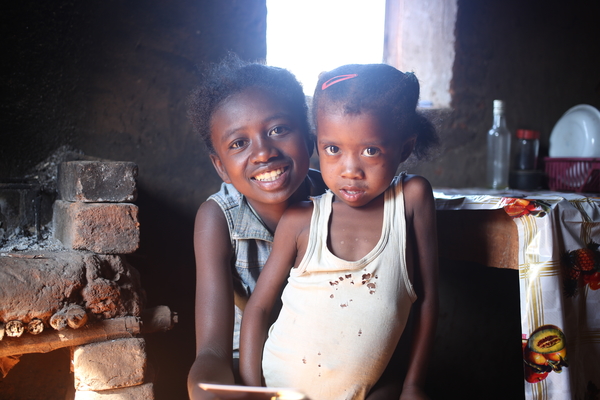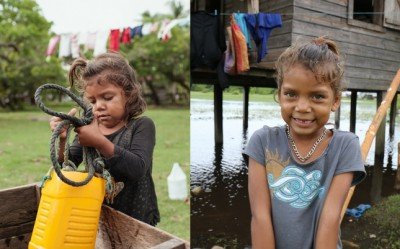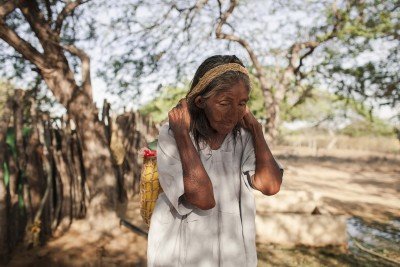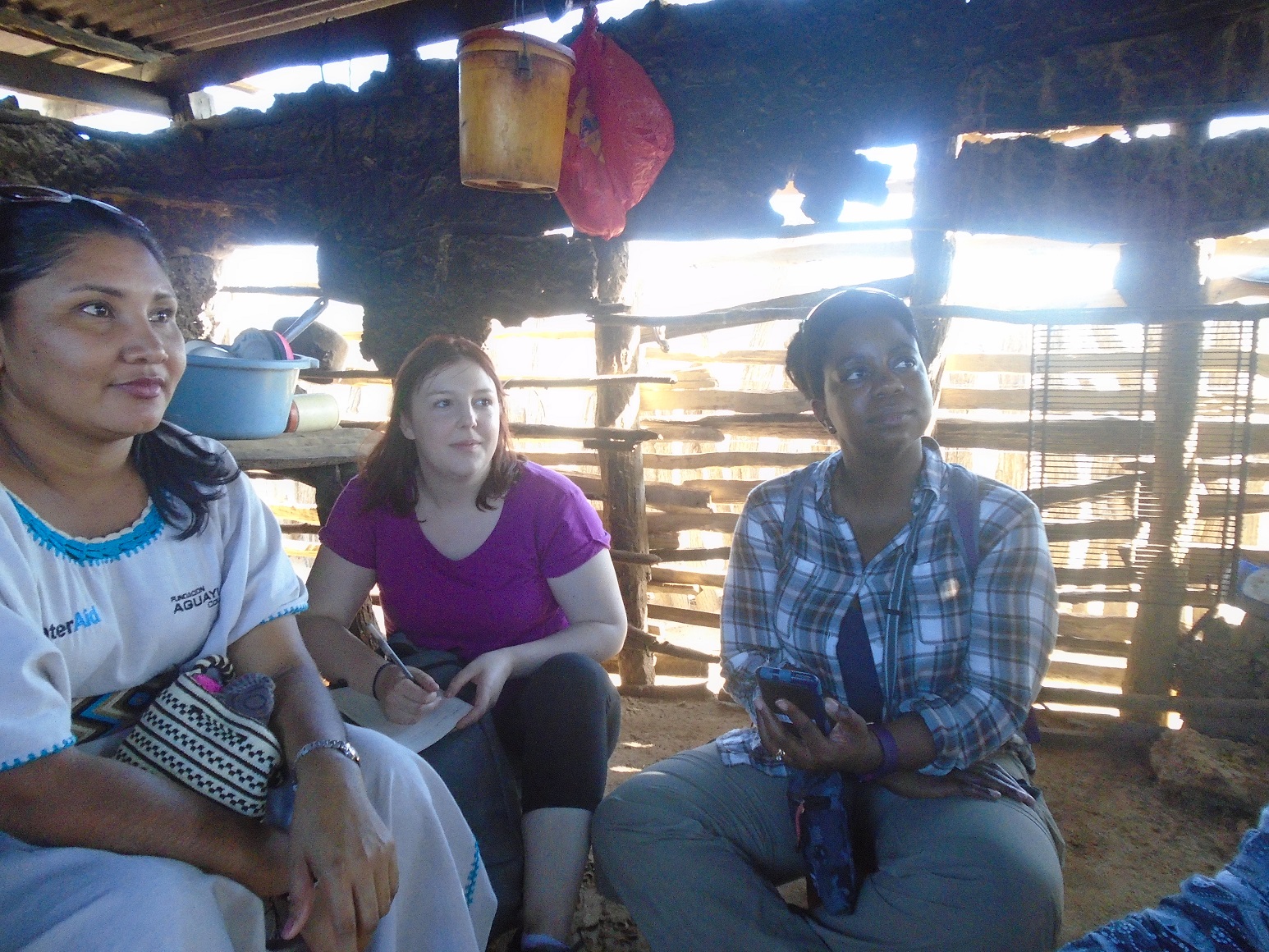Sandrine and Faniriana

For as long as she can remember, Sandrine, 13, would wear the same clothes for weeks without washing them. Additionally, she only showered and washed her hair for special occasions such as Easter or Christmas. The reason for this was because the only water source available to Sandrine’s village was very dirty. However, once WaterAid, in partnership with Caritas, installed a water tank, this changed the hygiene behaviors of Sandrine’s family for the better.
Curator’s note: The following is an excerpt of Sandrine and Faniriana’s story as told to WaterAid staff in December 2016.
My name is Sandrine Nasolo but people just call me Sandy. I am 13 years old and I have lived in our village since I was born, with my sister and my parents. I love school but I dropped out a few years ago because I have to support my family with daily activities.
I have to do a lot of chores every day such as pounding the rice, cooking food, taking care of my young sister and fetching water. Sometimes I also work in the field with my parents – working the land and planting. I have to fetch water for our household far away from our home, down the hill on the south side of our village. I am used to it as I started fetching water when I was very young. I carry a jerry can on my head. It hurts my head and my neck but the hardest thing is to lift it up on my head when I am alone at the water source. The jerry can is heavy but I prefer fetching water fewer times with a jerry can than going back and forth many times with a smaller bucket.
I didn’t think our water was dirty until we had water from the pipes from Caritas (implementing partner). The color and taste are totally different. The one from the pipe is cleaner and better. Now we no longer fetch water from the bottom of the hill because water is already running non-stop from the big pipe near the big concrete thing in the center of the village (the new suspended concrete cylindrical water tank). We already fetch, wash clothes and drink water there.
A few months ago, Jean Yves, (Jean Yves is one of our project crew, a socio-animator working directly in the field to promote hygiene with local community agents), started visiting us and talking to us about hygiene. You were not here before, so you don’t know how our house and our life was a few weeks ago. My family and I used to always wear the same clothes for weeks without washing them. I only had a shower if there was a big thing happening in our village, such as an exhumation, Easter or Christmas.
We used to sleep with our chickens. Everything was on the ground; our cooking pot, plates and spoons. My mum was mentally a bit sick before so she didn’t really care about anything. But now she cares. She tells me off now if she finds something that shouldn’t be on the ground.
A few weeks ago my dad made a wooden table as a place for the kitchen utensils and a few days ago my mum bought us a tablecloth from the market.
Jean Yves has taught us so many things. Everything he was saying is easy to do now because water isn’t far away anymore.
I only used to wash my hair once every two months and sometimes even less but now I do it almost every week. I wash my hair now if I feel there is dirt. I also used to have lots of hair lice and body lice but now I don’t have that many anymore because I wash my hair and our clothes as often as possible.
Our life now is much cleaner and better than before. I am now proud of my family and myself and proud of what we have achieved so far to improve our hygiene. I am now able to take care and wash my young sister. The other children and girls in our village are looking at us differently now. Before, they didn’t like us too much because we had lice and were dirty.
Jean Yves is always coming to our house to give us ideas and to see the progress we have made. He is very happy to see the change. I am also happy because Caritas and our neighbourhood decided to install one of the fountains in front of our house.
I don’t know yet what I am going to be when I am older, maybe a mother.”
Photo credit: WaterAid/Ernest Randriarimalala






